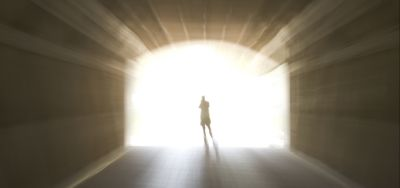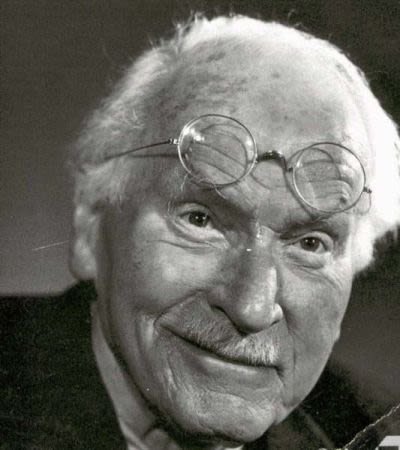
Life after death – the idea rooted in our brains so deeply that in some form is present across nearly all cultures around the world. Some of us believe in afterlife. Some of us just wish it could be true. But some of us claim they actually were on the other side - the people that had near death experience (NDE). Passing through the tunnel, leaving the physical body, meeting a god, meeting dead relatives or maybe just experiencing something words cannot describe. Many times NDE is so strong, it can transform your life. Is NDE really leaving our physical world and entering the afterlife or is it just an illusion of our brains?
Jung's experience

Meet Carl Gustav Jung, one of the greatest psychologist of the 20th century. Jung is actually one of the founders of analytical psychology. He worked together with Sigmunf Freud who saw a great potentiall in him. In other words, he was a real specialist who devoted his whole life to studying psychology.
When he was 68, he got cardiac arrest with near death experience following. He claimed that during the time he was unconscious he left his body. He recall in his autobiography Memories, Dreams, Reflections:
I would never have imagined that any such experience was possible,
he wrote:
It was not a product of imagination. The visions and experiences were utterly real; there was nothing subjective about them; they all had a quality of absolute objectivity.
Jung left the body and flew in space, looking down on the earth, which was “bathed in a gloriously blue light.” He had life review—reviewing everything he had ever experienced. He saw oceans, continents, snow-covered mountains, and a temple floating in space. He approached the temple with the certain knowledge that he would encounter a room filled with people he knew and meet others who would tell him the meaning of his life. Then his journey took an unexpected turn. His physician, Dr. H., “in primal form,” floated up from Europe, where Jung’s physical body lay, to deliver a message. There had been a protest against Jung leaving earth—he must return. “The moment I heard that,” wrote Jung, “the vision ceased.”
Jung claimed that this experiece changed his life. He wrote:
After the illness a fruitful period of work began for me. A good many of my principal works were written only then ... Something else, too, came to me from my illness.” He found it easier to accept “the conditions of existence as I see them and understand them.
Actually approximately 30% patients with cardiac arrest experiece something very similar. The researches could not find a thing that connects them. There was no correlation with the time spend unconscious, the time for resuscitation, no correlation with anesthetics, culture, sex or age. Even children have these experiences! Is it possible that all of them are mistaken? Or maybe there is something after death?
NEXT PART : NDE #2: HOW TO LEAVE YOU BODY

Sources: Jung's atuobiography: http://www.venerabilisopus.org/en/books-samael-aun-weor-gnostic-sacred-esoteric-spiritual/pdf/200/265_jung-carl-memories-dreams-reflections.pdf
The God Impulse: Is Religion Hardwired into the Brain?
https://www.ncbi.nlm.nih.gov/pmc/articles/PMC3399124/
https://www.ncbi.nlm.nih.gov/pmc/articles/PMC3769617/
It is quite a sensitive topic. Most people try to assume that all of life ends here, when we die. But repeated accounts such as that of Jung, and so many other documented cases certainly points to the fact that there is life after death.
It can be compared to dreams, when our body is still and yet in our subconscious we go on living. It would always be a fascinating topic though - life after death.
Thanks for sharing @bewise
Well I think you might like my upcomming series about NDE :) I try to make a skeptical and scientific approach to this topic and maybe rationally explain some of the fenomena.